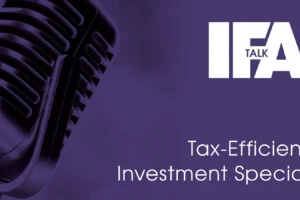The Venture Capital Trust (VCT) scheme was introduced in 1995. It encourages private investment in small, high-risk businesses. Over the years, several policy changes have shaped its structure and impact.
Major Policy Changes
2004-2005: On 6th April 2004, the maximum qualifying investment for Income Tax relief doubled, from £100,000 to £200,000. Meanwhile, Capital Gains deferral relief was not available.
2006-2007: On 6th April 2006, the maximum gross assets of qualifying holding were reduced from £15 million to £7 million before investment and from £16 million to £8 million after. Income Tax relief decreased from 40% to 30%, and the required holding period for VCT shares increased from three to five years.
2007-2008: On 6 April 2007, eligible companies were limited to those with fewer than 50 full-time equivalent employees, a restriction which also applied to companies who sought funding through the EIS. From 19 July 2007, companies must have raised no more than £2 million in any 12-month period under any or all of the tax-based venture capital schemes (VCT, EIS).
2009-2010: Funds raised had to be fully employed within two years of issuance or business commencement.
2011-2012: The requirement for businesses to operate wholly in the UK was replaced with a requirement for a UK-based permanent establishment. The restriction which had prevented a VCT from investing more than £1 million per annum in any single company was removed (unless the company is a member of a partnership or joint venture that carries on the qualifying trade).
2012-2013: On 6th April 2012, VCT qualifying holdings were extended to companies with fewer than 250 full-time equivalent employees and gross assets of no more than £15 million before investment and £16 million after investment. The increased thresholds apply also to companies seeking funding through EIS.
Meanwhile, the annual investment limit for companies increased to £5 million, with that sum taking into account the EIS and SEIS investment, along with any other investment received by any measure covered by the European Commission’s Guidelines on State aid to promote Risk Capital Investment in Small and Medium-sized Enterprises.
2014-2015: From April 2014, VCTs could no longer return share capital to investors within three years of the end of the accounting period in which the VCT issued the shares.
The 2014 Budget saw the government announce that companies benefiting from Renewables Obligation Certificates (ROCs) and/or the Renewable Heat Incentive (RHI) scheme would be excluded from the SEIS, EIS and VCT schemes.
2015-2016: Companies (excluding community organisations) undertaking the subsidised generation of electricity involving Contracts for Difference or involving renewable sources (anaerobic digestion or hydroelectric power) were excluded from investments made on or after 6 April 2015.
2016-2017: Companies generating energy, gas, or fuel became ineligible for investment.
2017-2018: For investments made by a VCT on or after 15th March 2018, qualifying loans had to be unsecured, and returns on loan capital were not above 10%, while the grandfathering rules were removed for investments on/after 6th April 2018.
VCTs had to invest 30% of funds raised within 12 months, with qualifying holdings increasing from 70% to 80% by 2019. A “risk-to-capital” condition was introduced to ensure investment-backed companies aim for long-term growth and face substantial capital risk.
Looking Ahead
A sunset clause was set for 6 April 2025, meaning the scheme could be reviewed or revised. For further details on the VCT scheme and policy changes, please see the Venture Capital Schemes manual and investment schemes guidance.
Source: EISA via IFA/GBI Magazine’s Tax Efficient Investment Research Report 2025 (Pages 152-154).















